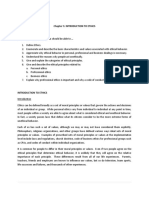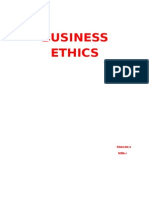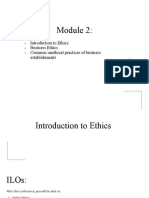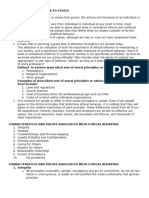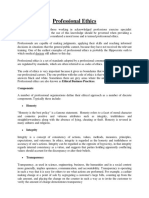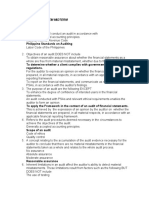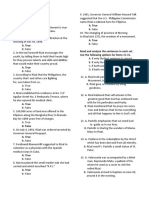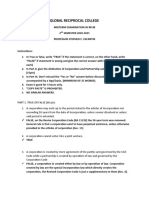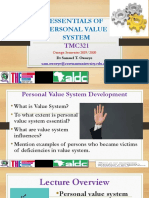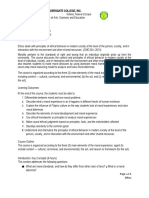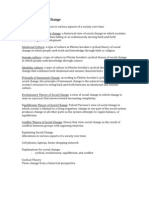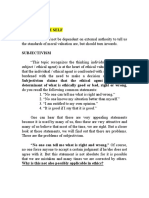0% found this document useful (0 votes)
258 views9 pagesIntroduction to Ethics Guide
This document provides an introduction to ethics. It defines ethics as a set of moral principles or values that govern individual and group actions and decisions. It then lists and describes several key characteristics and values associated with ethical behavior such as integrity, honesty, fairness, caring for others, and respect. The document explains that while personal ethics may vary, societies generally agree on what constitutes ethical and unethical behavior. It also discusses why ethical behavior is important for organizations to maintain stakeholder trust and avoid reputational damage.
Uploaded by
sharielles /Copyright
© © All Rights Reserved
We take content rights seriously. If you suspect this is your content, claim it here.
Available Formats
Download as DOCX, PDF, TXT or read online on Scribd
0% found this document useful (0 votes)
258 views9 pagesIntroduction to Ethics Guide
This document provides an introduction to ethics. It defines ethics as a set of moral principles or values that govern individual and group actions and decisions. It then lists and describes several key characteristics and values associated with ethical behavior such as integrity, honesty, fairness, caring for others, and respect. The document explains that while personal ethics may vary, societies generally agree on what constitutes ethical and unethical behavior. It also discusses why ethical behavior is important for organizations to maintain stakeholder trust and avoid reputational damage.
Uploaded by
sharielles /Copyright
© © All Rights Reserved
We take content rights seriously. If you suspect this is your content, claim it here.
Available Formats
Download as DOCX, PDF, TXT or read online on Scribd
/ 9





